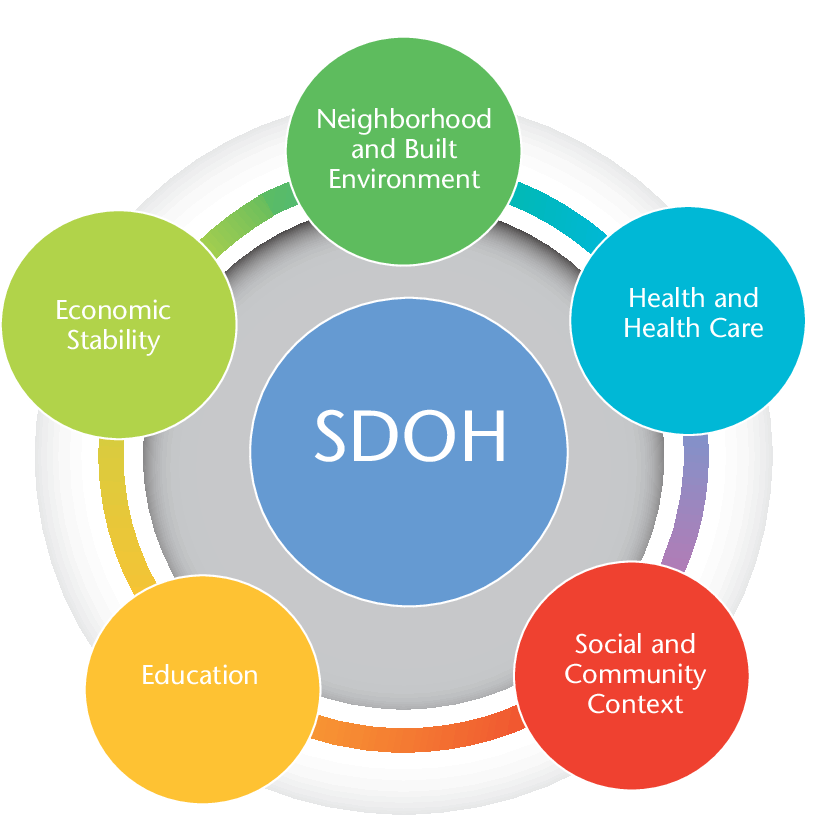Social Determinants of Health
This content is provided for educational and informational purposes only and does not constitute providing medical advice or professional services. The information contained herein should not be used for diagnosing or treating a health condition, and those seeking medical advice or guidance should consult with a licensed and qualified healthcare provider. Always seek the advice of a qualified healthcare provider regarding a medical condition. Never disregard professional medical advice or delay in seeking it because of something you have learned here or elsewhere.
If you think you may have a medical emergency, call 911 or go to the nearest emergency department immediately. No physician-patient or provider-patient relationship is created by this website or its use. Boulder Care makes no representations, express or implied, with respect to the information provided herein or to its use.
Key Points
- Social Determinants of Health can have an impact on a person’s recovery
- Resources may be available to help you
- Your Boulder Care Team, especially your Peer Recovery Specialist, can help connect with you with available resources
What is a Social Determinant of Health?
Social Determinants of Health are the conditions in which people are born, grow, live, work, and age. They include non-medical needs such as safe housing, food security, financial stability, education, a job, safe environments, access to health care, and social supports. The World Health Organization (WHO) says improving these areas improves overall health and well-being, which can help you meet your goals.
Examples of social determinants of health include:
- Income level
- Educational opportunities
- Occupation, employment status, and workplace safety
- Gender inequity
- Racial segregation
- Food insecurity and inaccessibility of nutritious food choices
- Access to housing and utility services
- Early childhood experiences and development
- Social support and community inclusivity
- Crime rates and exposure to violent behavior
- Availability of transportation
- Neighborhood conditions and physical environment
- Access to safe drinking water, clean air, and toxin-free environments
- Recreational and leisure opportunities

Social Determinants of Health: Health and Health Care, Social and Community Context, Education, Economic Stability, and Neighborhood and Built Environment
Identify your Needs and Goals
Your Peer Recovery Specialist will work through a plan called a Recovery Capital Blueprint with you to find areas that may worsen your health. We will work with you to identify areas you would like to focus on.
Resources
Each state or county may have community resources that provide support in the areas listed above. Finding the right resource may not always be an easy process, or a quick one. Your Boulder Care Team has a resource list for your area. We will help you determine what resources are available in your area and help you get connected to them.
Action Steps
- Work with your Peer Recovery Specialist to create your Recovery Capital Blueprint
References
- Kaiser Family Foundation: Beyond Health Care: The Role of Social Determinants in Promoting Health and Health Equity
- New England Journal of Medicine Catalyst: Social Determinants of Health (SDOH)
- World Health Organization: About Social Determinants of Health
- CDC: Social Determinants of Health
- US Department of Health and Human Services: Social Determinants of Health
Questions, concerns, or feedback?
You can send a message to your Care Team in the app with non-urgent questions or feedback, or call us at 888-316-0451.